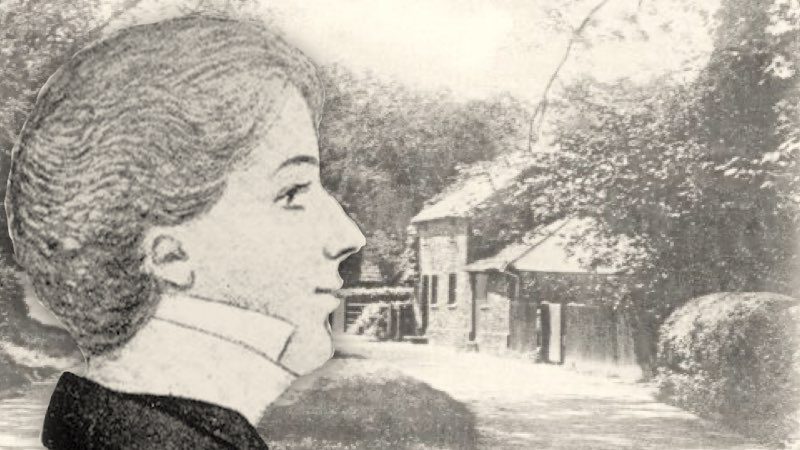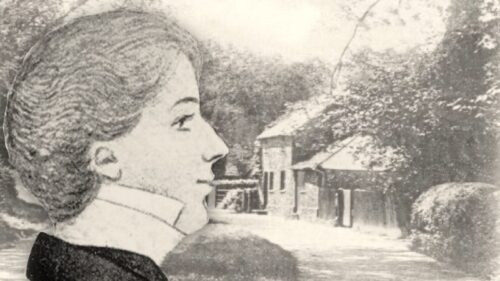-
There Is No Fear Of God Before Their Eyes
"There is no fear of God before their eyes." (Romans 3:18) Commenting upon this verse J.C. Philpot said, “Those who have every reason to fear as to their eternal state before God, have for the most part, no fear at all. They are secure, and free from doubt and fear. The depths of human hypocrisy, the dreadful lengths to which profession may go, the deceit of the carnal heart, the snares spread for the unwary feet, the fearful danger of being deceived at the last; these traps and pitfalls are not objects of anxiety to those dead in sin. As long as they can pacify natural conscience, and do something to soothe any transient conviction—they are glad to be deceived! God does not see fit…
-
August 21—Morning Devotion
"Fear not; for they that be with us, are more than they that be with them."—2 Kings 6:16 My soul, never lose sight of this which was shewn to the prophet's servant in his fright. Though thou seest not, with bodily eyes, the mountain full of horses and chariots of fire in thy defence; yet with thy spiritual eyes, thou mayest see, infinitely beyond all this, as surrounding thee at all times and in all places, God thy Father, with all his divine attributes and perfections, all engaged, all made over, all pledged in covenant engagements, in Jesus, for thy defence, protection, comfort, security, and guiding thee in all things. There is more in that one assurance than in a thousand worlds, "I will be…
-
Seeing God’s Glory
“And he said, I will make all my goodness pass before thee, and I will proclaim the name of the LORD before thee; and will be gracious to whom I will be gracious, and will shew mercy on whom I will shew mercy.”—Exodus 33:19 A Daring Request Have you ever thought what an daring request Moses made when he asked God, “I beseech thee, shew me thy glory”? What would possess a man to ask such a thing? Was he merely curious? Was he presumptuous? Was be being foolish or bold? Have you considered that Moses might be desperate? If he was, it was with good reason. Moses’ confidence in God had been shaken. He no longer knew whether God was with the Children of…
-
Taught Of The Spirit
March 16, 1830 My dear Brother, I am happy to say that the sermon has been blessed by God in this neighborhood, and consequently has made a very great stir. I received a letter from a poor man at some distance, thanking me for printing the sermon, as it has been a comfort to his soul and to others. Of course I shall have neither the praise of the unbelievers, nor their good wishes. The gospel is a fan that will separate the chaff from the wheat. The Pharisees and philosophers get but little hope from me, and will, therefore, seek more flattering preaching elsewhere. I am thankful to say the Lord enables me to be faithful; but it will avail nothing to assent to…
-
Ancient Prophecy, Proved To Be Divine
A Discourse Preached By John Brine At The Rev. Mr. Thompson’s Meeting-House, In A Monthly Exercise Of Prayer, With A Sermon, February The 19th, 1761. Published At The Request Of Some Who Heard It. “For the prophecy came not in old time by the will of man; but holy men of God spake as they were moved by the Holy Ghost.”—2 Peter 1:21 The Apostle exhorts us, in the preceding part of the context, reverentially to regard the writings of the prophets. And in order to enforce his exhortation, he introduces the words which I have read. In treating the text, I would first, explain the terms and phrase used therein, and then, advance a doctrinal proposition from them. First. Prophecy is the knowledge and…
-
The Application Of Scripture To The Mind
Manchester, 1841 Messrs. Editors,—I am concerned to know how we may assure ourselves that a passage of Scripture, when applied to the mind, is by God the Holy Spirit, and not by the evil one who lieth in wait to deceive. If you or some of your correspondents will endeavour, through the medium of the Standard, to bring me to a satisfactory conclusion upon that matter, it will be greatly esteemed by your constant reader,—ELIZABETH. Answer. “Elizabeth” says she is “concerned to know how we are to assure ourselves that a passage of Scripture, when applied to the mind, is by God the Holy Spirit, and not by the evil one who lieth in wait to deceive.” Now to me it appears that what comes…










